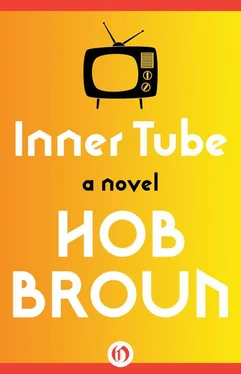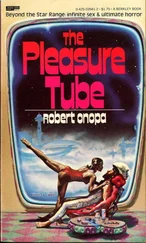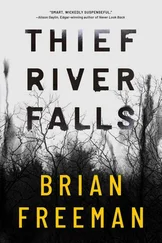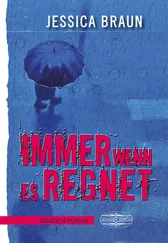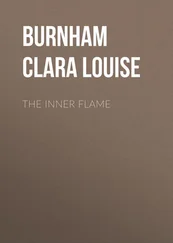I smiled encouragingly.
“All right, it can be taken care of. Not much point in shoveling as much shit as I do if I can’t get a thing fixed every once in a while. So I can make some calls and I can get you a deferment. Takes me twenty minutes. But you have to pay your way here, my friend. You have to take whatever job I get you and stick with it and make a contribution.”
CBS had its news operation in a one-time milk factory on Eleventh Avenue. The halls were extremely narrow, like the walkways in a submarine. People were forever flattening themselves. They called us desk assistants and took our fingerprints, but we were really copy boys. A hundred and ten a week, shirt and tie required, and all the pencils we could sneak out of the building. I worked turnaround shift on the TV side, midnight to eight. Four a.m. was the real dead spot and that’s when I’d slide next door with Ron, the gay telex operator from Palm Beach, and toke up on the Evening News set.
It was a large blue room, but not that large. File cabinets, a blackboard, a few glassed-in cubicles, the big desk with the wall map behind, and off to the right the bank of wire-copy machines it was part of my job to look after. (The only time they were ever turned off was during the actual show, when a background tape was substituted; the real clack-clacking would have drowned out every word.) At that hour the place was sure to be deserted, and other than that we didn’t give it much thought. But sometimes, sitting in that great delphic throne and hoodooing my brain, a peculiar sensation would steal over me. Looking into the dead eye of the camera, I would imagine millions of American hearthsides visible only from where I perched, that I could somehow reach through the eye and deposit in those deeply slumbering places all the secrets kept off the air. What I sent to them instead were lungfuls of smoke.
One night a network correspondent called in from Bonn. He was mournful and drunk and wanted to talk to anyone. They’d thrown him out of the hotel bar. His girlfriend had dumped him for a Hungarian diplomat. He had a gun in his room and was thinking seriously about using it.
I said, “Shall I tell them to cancel your satellite time for tomorrow?”
“Kid, listen to me, kid. I’ve lost it. Pride, control, whatever it is. Totally lost it. I’m nothing but a foul ball out here.”
I told him to hold on while I got a cigarette. When I came back someone else was on the line and they were speaking German. I hung up.
But the man was on air the following night with his transatlantic feed, standing in front of the Bundestag solid as a pilaster, steam wisping out of his nostrils, eyes steady and hard. A real old-time reporter’s face, on which a smile was a deformity.
The calls became a semi-regular thing, even after his transfer to Prague (“Best beer in the world, kid”). He was usually tanked, but not always, and we’d talk about whatever was bothering him that particular night: his colitis, his ex-wife in Cincinnati and the kids who never wrote, the articles Atlantic Monthly kept rejecting. It amazed me how anxious he was for my good opinion.
“How was the piece Tuesday? Did you see it?”
“Well, the fur hat. I don’t know.”
“So I looked ridiculous? Like a cat fell asleep on my head?”
“More or less. But the piece itself was fine. Really.”
“Really?”
He wasn’t the only one easily wounded in those days, so I told a lot of lies. I was young and I wanted to please.
It was in general a time for euphemism, of a withdrawal from fact as from an open grave. There was great outcry over negativism in the news. The populace was battered by candor and innovation and they were tired. They had no interest in narrowing the credibility gap. They did not wish to be notified on the black-bordered cover of a national magazine that God was dead. They didn’t want their dinners spoiled by the nightly recitation of body counts, by images of angry milling dissenters in the street. Be gentle, they begged. Tell about the self-made millionaires, and kids who don’t take drugs.
Network executives exchanged worried memos, then came out into the open rumbling about professional integrity and the free flow of information, their neatly barbered heads held high. The public’s right to know was sacrosanct and they would defend it to the very last rating point. Few were owning up, but the heart of the matter was the power to decide what was Important. The old milk factory as colonial fort.
Like the time I was waiting on the corner for the cross-town bus, overheard these two studs from the documentary division:
“What I said was, ‘You want me to recut the interview to make it sound that way, I can do it, but take my name off the credits.’”
“Did he freak out?”
“Nah, just gave me the line about this is bigger than both of us and locked himself in his office.”
“Running scared.”
“So who isn’t?”
The weight of Policy bore down on all and sundry, making their movements wobbly, creasing their foreheads. Instead of “How about lunch?” people would say, “Let’s have a dialogue.” They clustered like blowflies at the edges of the newsroom to discuss detachment and accountability Voices were sometimes choked, sometimes grave. They compared measurements of cultural drift and electorate mood. They gestured with their hands and said things like “Morality cannot be legislated” and “Well, sometimes, guys, we can get a little insular.” Early one morning, not twenty feet from my desk, two reporters interviewed each other for a Sunday think piece.
On one point wide agreement was reached: that the decade was of pivotal significance — that through turbulence and upheaval we were living a kind of instant history. How quaint that now seems, the earnest belief that all the noise amounted to something more.
Myself, I took to chalking slogans on the Cronkite blackboard:
THE TRUTH SHALL SET YOU FREE
FOLLOW PACKAGE DIRECTIONS CAREFULLY AND DO NOT EXCEED THE RECOMMENDED DOSE
But slogans, you know, are the easiest things. The best I could do was share a little bourbon in paper cups with the uptown women who came to clean the offices at night. In one way or another, we were all fools.
CONSIDER THE HEDGEHOG, WHOSE stiff, spiny hairs discourage attack. Often, before eating a toad, it chews the amphibian’s poison gland, lathering itself with toxic froth and augmenting its defenses. An efficient mechanism for an efficient mammal nicely placed in its niche.
Consider the overevolved creature whose most dangerous enemies come from within. Imagine the first useless panic, the first nightmare, the first crushing turn of anomie. Ten thousand generations later, all we can do is palliate. Misery abhors a vacuum and history is a list of sedatives; from animism to humanism to Haldol.
We choose our own methods for treating grief and fear. Superstitions and pharmaceuticals have their cost, and confession is too cheap. Brutality is circular and flight inevitably leaks. But there is a folk remedy as simple as the hedgehog, something more valuable in the institutional dayroom, the widower’s autumnal parlor, than any drug or counselor’s bromide. It is television.
I had a friend in New York named Chris Bruno. His father, a hotel man, kept trying to give him large sums and he kept refusing. Not that Chris had an overdrawn sense of his own integrity; only that the entailments of wealth didn’t interest him. He did airbrush paintings of office equipment and kitchen appliances. He wanted to be a lounge lizard, bitter and languid, but he was too excitable and no lounge would hold him. How close were we? Chris is the only man I’ve ever wanted to sleep with.
Читать дальше
